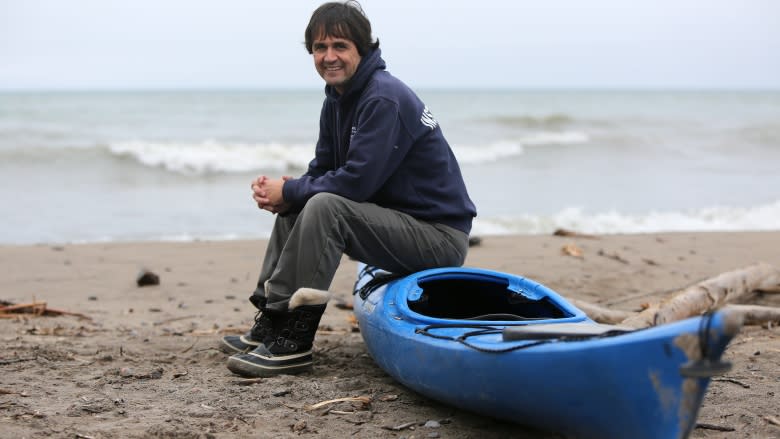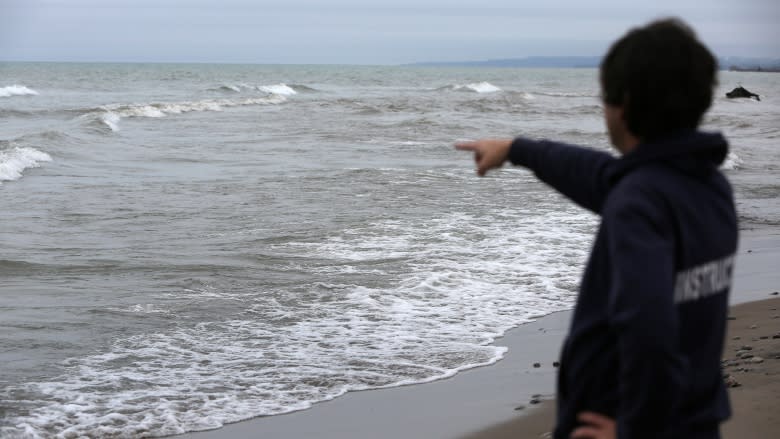Toronto to spend $500K to improve paddling access at 5 city parks
If February's spring-like weather has you planning your summer adventures, you may want to add kayaking on Lake Ontario to your list.
The city's parks and environment committee is set to discuss a plan to make Toronto a "paddle-friendly" city on Monday, something it hopes to accomplish by spending some $500,000 on five so-called paddling "nodes" — essentially small launching points for canoes, kayaks, stand-up paddleboards that will double as fishing spots.
- Metro Morning | What it's like to paddle the Don River
The nodes will be located in five city parks, from Scarborough to Etobicoke, though the committee's chair, Coun. Mary-Margaret McMahon, said the proposed locations may change (she's lobbying for one to be installed in her Beaches-East York ward). Regardless of where they're built, McMahon expects council to support them.
"I think it's high time we start animating our beautiful waterfront more," she told CBC Toronto.
"A lot of Toronto doesn't even realize we have a lake, a beautiful lake, down there."
Dave Corrigan, who owns the Harbourfront Canoe-Kayak Centre, has helped thousands of people discover the city's waterways. He delights in taking new paddlers to the Toronto Islands, and the small waterways that slice through them. Most people, he said, just don't realize how much nature there is so close to the big city.
"I think a lot of people enjoy the lack of concrete," he said with a smile, eyes scanning a calm Ajax river near his home.
Corrigan's business — perhaps you've seen his giant racks of candy-coloured kayaks near the lakefront — is closed for the winter, but he's already fielding calls about the summer months. He's also delighted to hear the city's plan to get more people involved in paddling.
One of his first questions about it, however, was where the nodes will be located.
Corrigan said it's far easier to learn to kayak on calm, flat water, and the best place to find that are the rivers that empty into Lake Ontario, not the lake itself. In fact, some parts of the lake can get rough in a hurry, he said, and there have been boating fatalities in recent years.
"If you do tip over out on Lake Ontario, you have to be that much more skilled to get back into your boat," he said.
McMahon said she recognizes the safety risks, but defended the city plan, saying it will make it safer for paddlers getting into the water.
"People do it anyway right now," she said, adding there are numerous boating clubs operating on the lake.
For now, would-be paddlers will have to bring their own equipment, though McMahon said in the future the city may consider partnering with someone to provide rentals.
If the committee approves the plan and city council does, too, then the Toronto Region Conservation Authority (TRCA) will begin building the paddling nodes this summer. McMahon said the TRCA will make sure the installations don't damage the environment.
Here are the five proposed sites, according to a city report:
- Bluffers Park
- Marie Curtis Park
- Prince of Wales Park
- Humber Bay Park West
- Coronation Park

 Yahoo Finance
Yahoo Finance 

